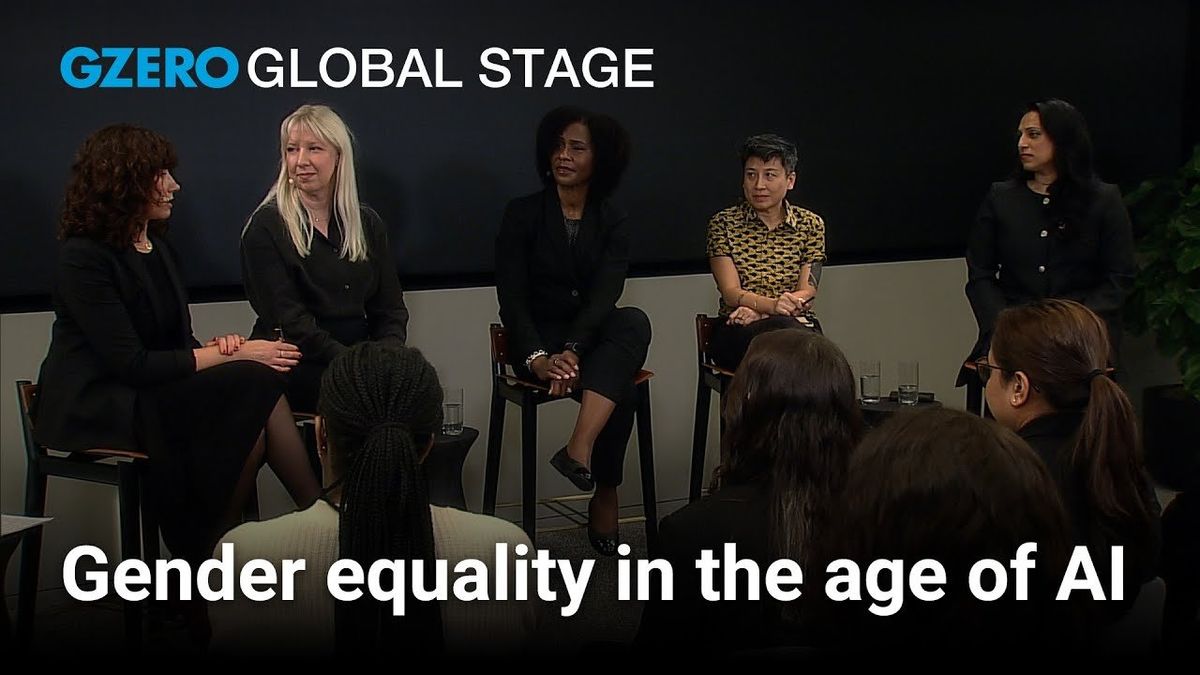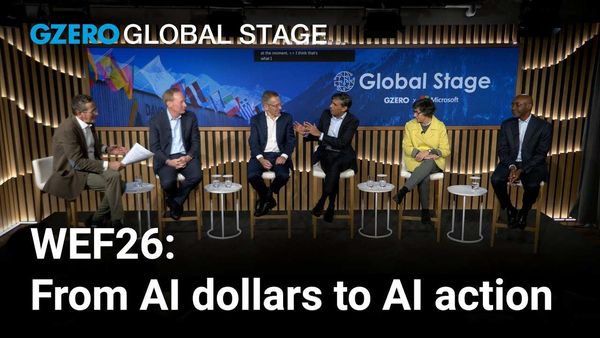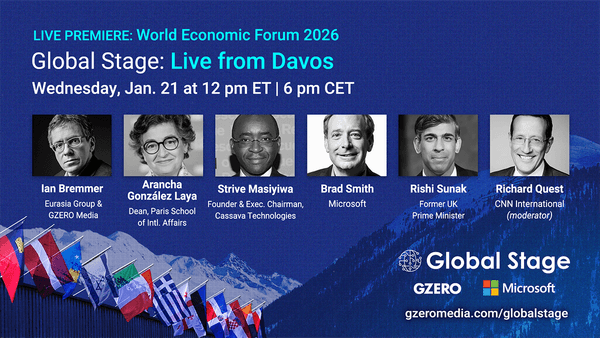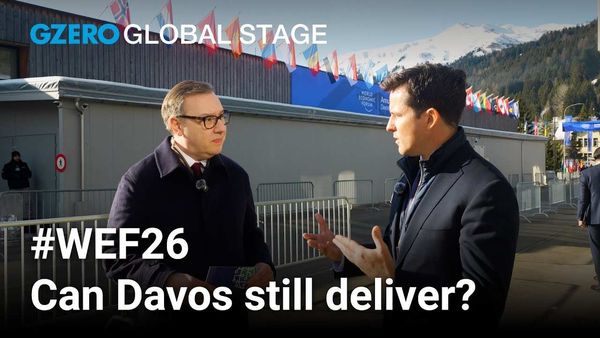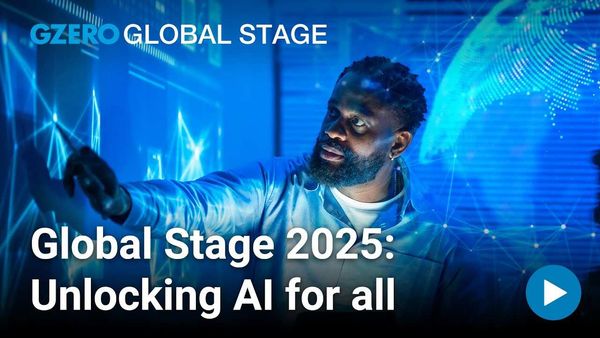At the current rate of progress toward gender equality, the World Economic Forum estimates it will take 131 years for women to attain parity in income, status, and leadership.
While technology is a powerful tool to help close the gender gap, it can also be weaponized. GZERO’s special presentation “Gender Equality in the Age of AI” featured candid conversations about the opportunities and threats that exist online, and how artificial intelligence will impact them.
Produced on the sidelines of the 68th United Nations Commission on the Status of Women, the program featured leading experts from government, technology, and philanthropy. Moderator Penny Abeywardena, former NYC Commissioner for International Affairs, was joined by Jac sm Kee, co-founder of Numun Fund; Vickie Robinson, general manager of the Microsoft Airband Initiative; Michelle Milford Morse, the United Nations Foundation’s vice president for Girls and Women Strategy; and Lucia Ďuriš Nicholsonová, a member of the European Parliament from Slovakia.
“The beauty and the promise of digital technologies is the opening up of democratic and civic participation space,” said Jac sm Kee. “But what is happening right now is the direct closing down of these spaces through deliberate attacks.”
The discussion focused on three key areas: gender-based online violence, the need for greater digital inclusion and access, and increasing leadership roles for women in all aspects of public life.
In a recent study from UNESCO, 58% of women and girls surveyed globally said they had experienced online violence, defined as a range of abuses including harassment, stalking, and defamation. Female journalists and politicians experienced these threats in even higher numbers.
During GZERO’s program, European Union parliamentarian Lucia Ďuriš Nicholsonová shared incredibly disturbing messages she has received throughout her years in office, many including violent and profane language and graphic sexual threats.
“These words are real. The people who are writing these words are real,” Nicholsonová said. “We can erase them through algorithms online, but they will still exist. I think we really need to know what is out there because it's a real threat.”
Michelle Milford Morse of UN Foundation explained to the crowd gathered at the NYC event that these kinds of abuses have compounding impacts on victims. “More than half of young women are experiencing some form of abuse and harassment online, sometimes as young as eight,” she said. “I don't think that we're thinking enough about the accumulation of that over time and the real harm to their mental health.”
But technology, when used for good, is also a powerful tool that can help close the gender gap. Microsoft’s Vickie Robinson described the importance of connectivity and digital skills. Of the estimated 2.6 billion people worldwide who lack internet access, the majority are women and girls.
“It's critically important, now more than ever, we need to make sure that we close the digital divide once and for all, but that we bring along with that the skills, we make it affordable, we make it accessible,” Robinson said.
The conversation then turned to leadership, and the need for more women in positions of authority in all industries and sectors of public life.
“Parliaments and legislators that have more women, they prioritize social services for children and the most vulnerable. When they engage in peace agreements, those peace agreements last longer. They're more likely to protect biodiversity,” said Morse. “There is no argument for half our human family to be shut out of society.”
The program was part of the Global Stage series and produced by GZERO in partnership with Microsoft and the United Nations Foundation. The series features politicians, private sector leaders, and renowned experts in conversation about issues at the intersection of technology, geopolitics and society.
- Ian Explains: How will AI impact the workplace? ›
- Can A.I. Reduce Poverty and Inequality?: AI in 60 Seconds ›
- Want global equality? Get more people online ›
- What We’re Watching: Boosting access, gender equality, and trust in the digital economy ›
- Scared of rogue AI? Keep humans in the loop, says Microsoft's Natasha Crampton ›
- Can we achieve gender quality by 2030? - GZERO Media ›
- DVF in Davos: A fashion icon is still fighting for gender equality - GZERO Media ›
- AI in 2025: The "new electricity" could create huge economic growth - GZERO Media ›
- Leaders at Davos are turning "anxiety into action" - GZERO Media ›
- Is the Europe-US rift leaving us all vulnerable? - GZERO Media ›


